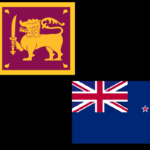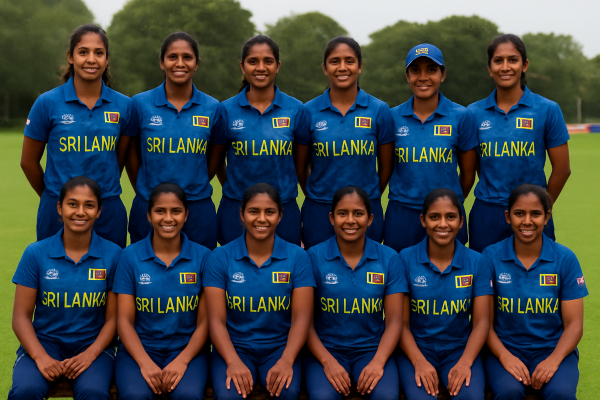Vital Tips for Avoiding Heart Attacks – By Dr Harold Gunatillake

Please Surf my Website : doctorharold.com
Remember to prioritise heart health. Manage your lifestyle, monitor your blood pressure, and stay informed. A heart attack isn’t the end— it’s a wake-up call.
– Richard Harris”
Hello, viewers! Welcome to our channel. Today, we’re diving into essential tips for preventing heart attacks. Whether young or old, taking proactive steps can significantly improve your well-being.” Today, it has become a lifestyle disease. Overall, in 2019, there were an estimated 398,027 cases and 17144 deaths due to CVDs in Sri Lanka. The proportion of deaths attributable to CVD increased from 24.92% to 28.05% between 2004 and 2019.
One can take proactive measures to prevent or prolong the onset of heart disease. Initiating dietary modifications and engaging in increased physical activity are pivotal. Furthermore, refraining from tobacco usage and moderating alcohol consumption are also beneficial. Gradually adjusting one’s daily routine can contribute to a healthier cardiovascular system.
Regarding preventing heart attacks, what steps can we take to prevent or delay the thickening of all arteries, referred to as atherosclerosis, including the coronary arteries that supply the heart muscles?
You need to check your blood pressure when you are 40 and over. Hypertension will likely affect the arterial tree by thickening artery walls, developing atherosclerotic plaques, and their vulnerability to rupture. Keep your systolic blood pressure between 120 and 125 mm Hg. Elevated blood pressure requires the heart to pump more force, leading to thickening blood vessels and plaque formation.
With the increase in atherosclerotic changes, you may develop heart failure before experiencing a heart attack. Increasing your blood LDL cholesterol increases the growth of plaques in your blood vessels. LDL, the “bad” cholesterol, transports cholesterol particles throughout your body. LDL cholesterol builds up in the walls of your arteries, making them hard and narrow. High-density lipoprotein (HDL), the “good” cholesterol, picks up excess cholesterol and returns it to your liver. An abundance of evidence has demonstrated the causal role of low-density lipoprotein cholesterol (LDL-C) in the development and
progression of atherosclerotic cardiovascular disease (ASCVD). Therefore, measuring LDL-C levels is central to risk assessment in all international guidelines.
According to the American Heart Association, trans fats increase LDL cholesterol and decrease HDL cholesterol, leading to a higher risk of heart disease. Industrially produced trans fat can be found in margarine, vegetable shortening, Vanaspati ghee, fried foods, and baked goods such as crackers, biscuits and pies. Baked and fried street and restaurant foods often contain industrially produced trans fat.
Trans fat is made when hydrogen is added to vegetable oil. These oils are called partially hydrogenated. Any food made with partially hydrogenated oil contains trans fat. Are butter and cheese trans fats? Trans fat also occurs naturally in food products from ruminant animals (e.g., milk, butter, cheese, meat products). The FDA’s actions have not affected these natural sources of trans fat.Eating trans fat raises LDL (“bad”) cholesterol in the blood.
Patients with diabetes are more prone to atherosclerotic heart disease, which accounts for approximately 50% of all deaths in industrialised countries, as well as the most common cause of death in Sri Lanka. People with diabetes are more prone to develop strokes than non-diabetics. There is no cure for diabetes once created. Still, you can reverse the sensitivity of resistant insulin secreted by the islet cells of the
pancreas through dietetic control and daily walks. Now, how does diabetes contribute to heart disease?
This is because your body can’t use all this sugar properly, so more sticks to your red blood cells and
builds up in your blood. This build-up can block and damage the vessels carrying blood to and from your
heart, starving the heart of oxygen and nutrients. Obesity, including pot bellies, increases the risk of heart disease. In Sri Lanka, potbellies are prevalent, especially in urban areas. “Now summarising the risk factors. These include high blood pressure, high cholesterol, diabetes, smoking, obesity, and a sedentary lifestyle .
Awareness is the first step toward prevention.” Does visceral fat cause a big belly? But too much visceral fat isn’t good for you. It comes with more risk for health problems, such as diabetes, heart disease, and stroke. While this type of fat might accompany having a giant belly you can see on the outside, you can’t see visceral fat. Visceral fat is fat that wraps around organs in your belly that are deep inside you. It
can surround your liver, intestines, stomach, and other internal organs. It’s healthy and expected to have some visceral fat. Everyone does. This fat can protect your internal organs. Sometimes, it’s called “active fat” because it affects your body’s functions. But too much visceral fat isn’t good for you. It comes with more riskfor health problems, such as diabetes, heart disease, and stroke, as mentioned earlier.
Maintain a Healthy Diet: “Load up on fruits, vegetables, whole grains, and lean proteins. Limit saturated fats, salt, and added sugars.”
Stay Active: “Regular exercise—aim for at least 150 minutes per week—keeps your heart strong and your blood flowing.”
Manage Stress: “Remember, your heart health is in your hands. Take charge of your lifestyle choices,
monitor your blood pressure, and stay informed.”
“Share this video to raise awareness. Let’s empower others to take proactive steps toward a healthier heart!”
Stay safe until we meet again; goodbye for now.




















